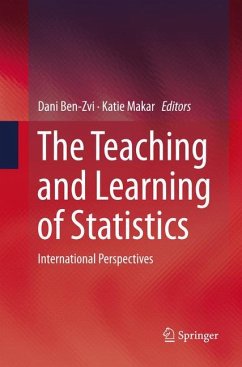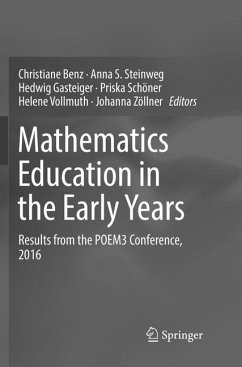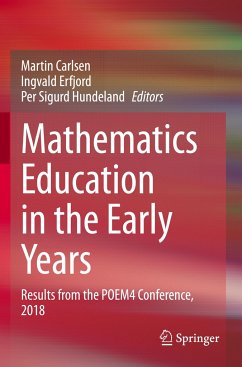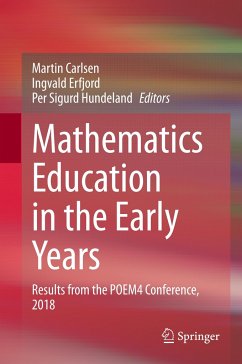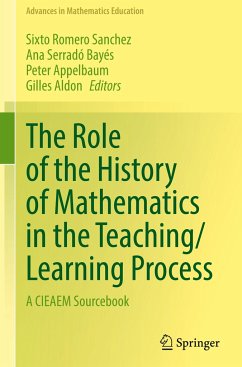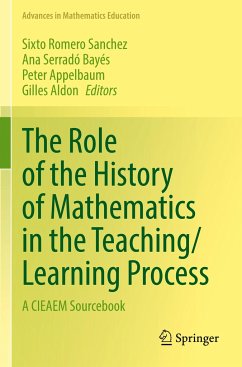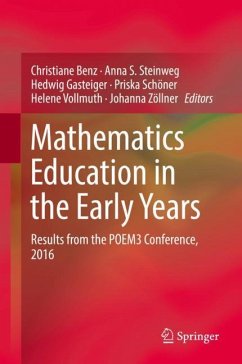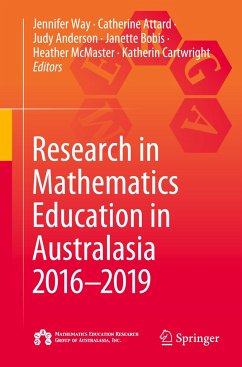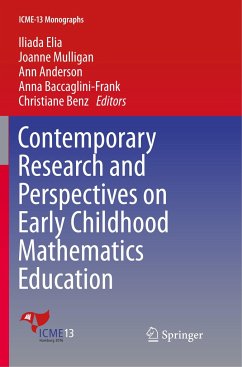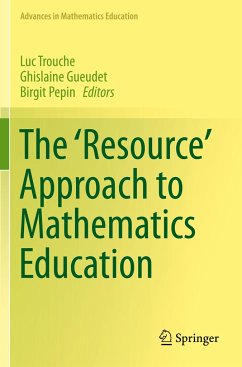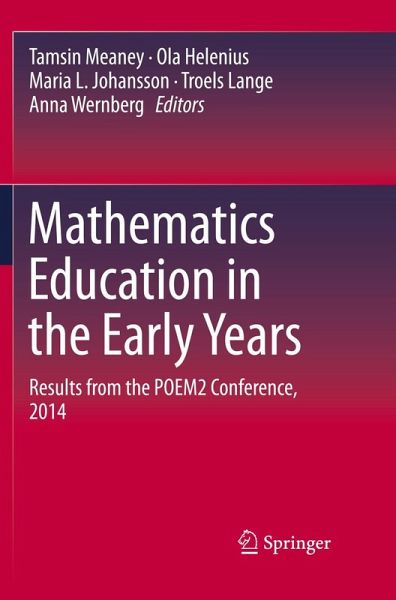
Mathematics Education in the Early Years
Results from the POEM2 Conference, 2014
Herausgegeben: Meaney, Tamsin; Helenius, Ola; Johansson, Maria L.; Lange, Troels; Wernberg, Anna
Versandkostenfrei!
Versandfertig in 6-10 Tagen
113,99 €
inkl. MwSt.

PAYBACK Punkte
57 °P sammeln!
This book presents chapters based onpapers presented at the second POEM conference on early mathematics learning. Thesechapters broaden the discussion about mathematics education in early childhood,by exploring the debate about construction versus instruction. Specific sectionsinvestigate the teaching and learning of mathematical processes and mathematicalcontent, early childhood teacher development, transitions for young children betweenhome and preschool, between home and school and between preschool and school. Thechapters use a range of innovative theoretical and methodological approaches ...
This book presents chapters based onpapers presented at the second POEM conference on early mathematics learning. Thesechapters broaden the discussion about mathematics education in early childhood,by exploring the debate about construction versus instruction. Specific sectionsinvestigate the teaching and learning of mathematical processes and mathematicalcontent, early childhood teacher development, transitions for young children betweenhome and preschool, between home and school and between preschool and school. Thechapters use a range of innovative theoretical and methodological approaches whichwill form an interesting basis for future research in this area.



